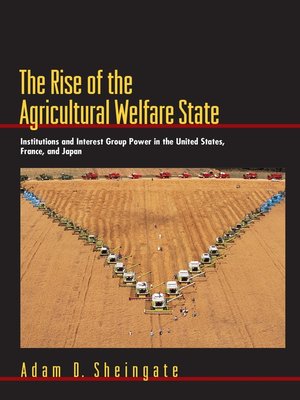The Rise of the Agricultural Welfare State
ebook ∣ Institutions and Interest Group Power in the United States, France, and Japan · Princeton Studies in American Politics: Historical, International, and Comparative Perspectives
By Adam D. Sheingate

Sign up to save your library
With an OverDrive account, you can save your favorite libraries for at-a-glance information about availability. Find out more about OverDrive accounts.
Find this title in Libby, the library reading app by OverDrive.



Search for a digital library with this title
Title found at these libraries:
| Library Name | Distance |
|---|---|
| Loading... |
A long-dominant reading of American politics holds that public policy in the United States is easily captured by special interest groups. Countering this view, Adam Sheingate traces the development of government intervention in agriculture from its nineteenth-century origins to contemporary struggles over farm subsidies. His considered conclusion is that American institutions have not given agricultural interest groups any particular advantages in the policy process, in part because opposing lobbies also enjoy access to policymakers. In fact, the high degree of conflict and pluralism maintained by American institutions made possible substantial retrenchment of the agricultural welfare state during the 1980s and 1990s. In Japan and France—two countries with markedly different institutional characters than the United States—powerful agricultural interests and a historically close relationship between farmers, bureaucrats, and politicians continue to preclude a roll-back of farm subsidies.
This well-crafted study not only puts a new spin on agricultural policy, but also makes a strong case for the broader claim that the relatively decentralized American political system is actually less prone to capture and rule by subgovernments than the more centralized political systems found in France and Japan. Sheingate's historical, comparative approach also demonstrates, in a widely useful way, how past institutional developments shape current policies and options.







